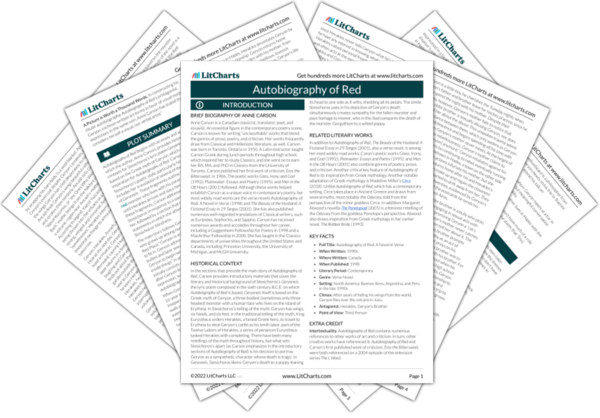In what has become a pattern, Herakles emerges to interrupt this tender, affirming interaction between Ancash and Geryon. He further establishes himself as incapable of emotional vulnerability or introspection by lightening the mood. By claiming to be “a master of monsters,” he’s seemingly fetishizing Geryon’s wings and also relegating Geryon back to the position he has always believed he belongs in: a monster to be ogled at, ostracized, and shamed.
